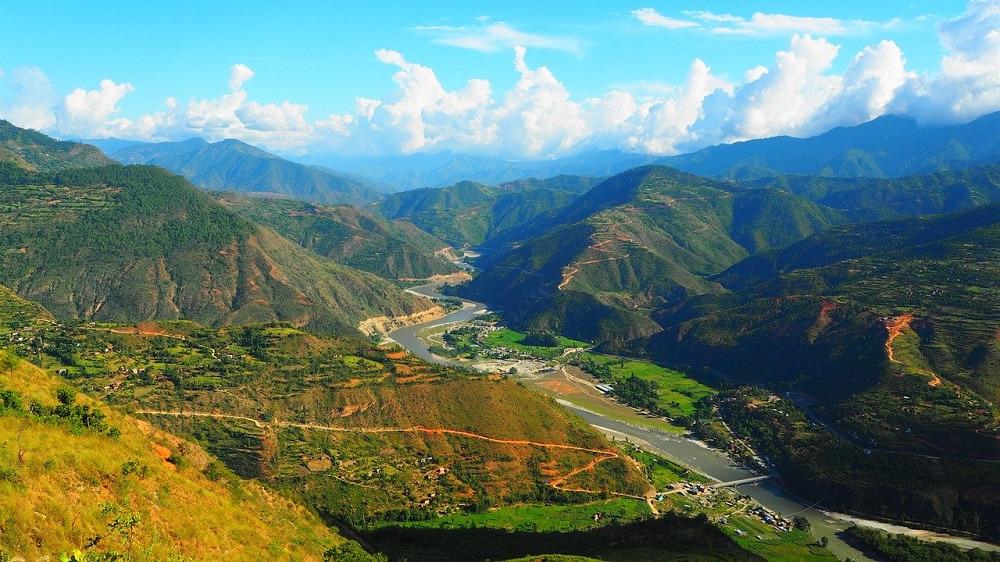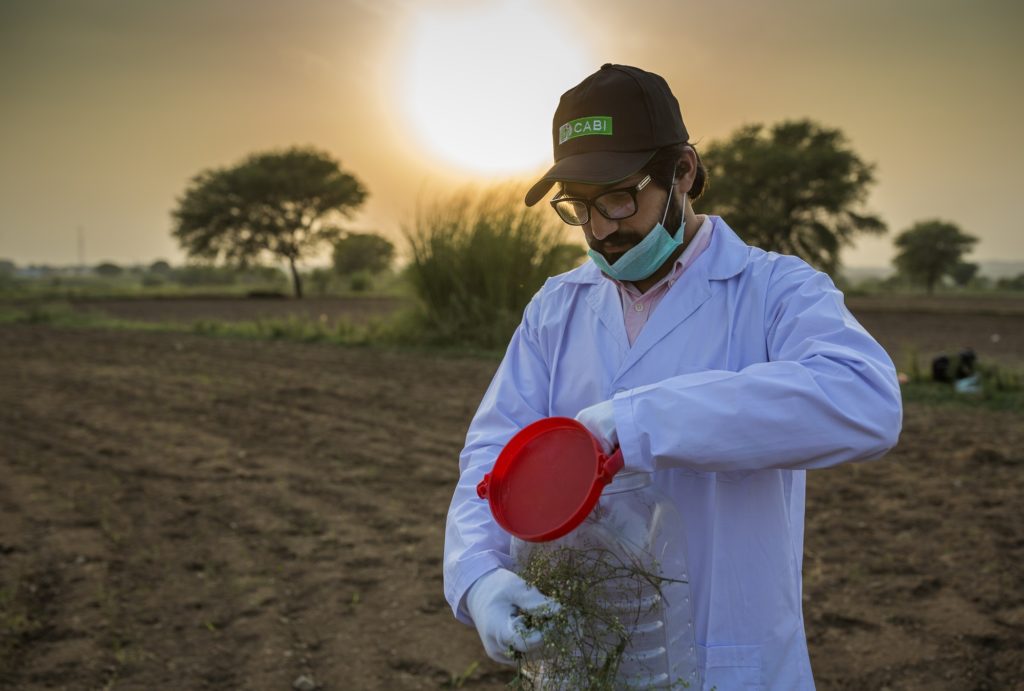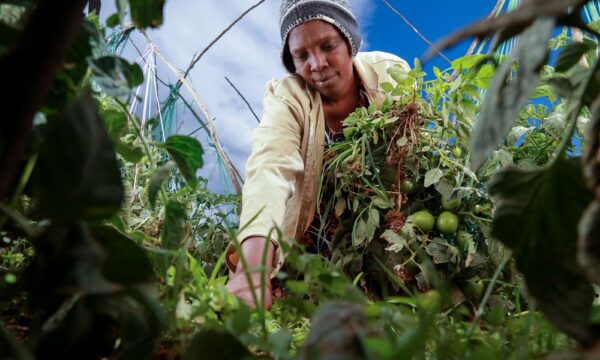The impacts of climate change will not just be experienced by our grandchildren in decades to come. For the 800 million of smallholder farmers across Africa, Asia and Latin America, the hazards being driven by climate change are already threatening their lives, incomes, and yields. CABI is working across its centres and with its partners to help smallholder farmers cope with the impacts of climate change now, and to build more productive, prosperous futures, resilient to natural hazards and shifting seasons.
Research into action
Science is the backbone of CABI’s work, and in particular the ability to translate scientific research into actionable advice for farmers, extension support services, companies, and government departments alike. An often-overlooked impact of climate change is how it will alter the risks posed by pests, diseases, and invasive plant species. Research suggests insect pests will move poleward and to higher altitudes, as currently colder climates become more suitable environments, and already hot climates become inhospitable, or host plants fail to survive.
Problem pests
In Nepal, CABI has worked with researchers to assess the current ways in which climate change is already altering the abundance and damage caused by a number of major crop pests, and to predict which areas are at increased risk of pests in the coming years, particularly at different altitudes across Nepal’s mountainous terrain. The study found that insect pests are already shifting their distribution in response to changing climatic conditions, and that increased temperatures is creating ‘hungrier’ pests, leading to more severe crop damage. Many diverse factors are influenced by climate change, including the healthiness and pest resistance of the crops themselves, and much more research is needed to understand the complex relationships between insects, crops, and climate change impacts.

Belligerent weeds
The impacts of climate change on the prevalence, distribution, and vivacity of invasive plants has had relatively little attention. But weeds can cause serious damage to crops and farmland, leading to huge losses for smallholder farmers, who lose out on vital food and income as a result, and can struggle to bring their farms back from the brink of invasion from some of the hardier weeds. In Pakistan, CABI is working with researchers to understand how climate change is driving the spread of parthenium weed, a destructive plant which is sweeping across Pakistan. Using advance climate change models, the team have been able to map where the weed is likely to spread to, and which areas will be most suitable for the weed in future climates. It’s clear that areas where it is currently too cold for the plant may be at serious risk of invasion in the coming years, as climate change causes warming temperatures. Elsewhere, CABI’s Woody Weeds project is developing innovative solutions for controlling the spread of hardy weeds which out-compete native plants for vital water and nutrients, which can ruin the chances of growing a healthy crop or destroy grasslands – which are vital ‘carbon sinks’.

Data deadspots
One of the challenges of modelling insect and plant risks caused by climate change in detail is the lack of data available in many countries in the global south. Yet, these are the countries who are most vulnerable to climate change impacts. In the Pakistan study for example, data was only able to be provided to 100km2 blocks, due to the paucity of reliable datapoints, weather stations, and satellite data across the country. To fully support smallholder farmers to predict and prepare for the risks posed by climate change, we need significantly more investment, globally and nationally, into the provision of reliable, quality data.
Climate smart pest management
One of the most effective strategies for supporting smallholder famers to adapt to the impacts of climate change is through ‘climate smart agriculture’. This approach aims to achieve the ‘triple win’ of increased farm productivity, greater resilience against natural hazards, and minimising greenhouse gas emissions too, empowering farmers to be part of the climate solution, as well as coping with inevitable impacts.
As well as supporting farmers to integrate techniques such as water conservation, multi-layer canopy shade systems, and soil health practices into their farm management, CABI are also pioneering ‘climate smart pest management’. This approach aims to reduce crop losses caused by pests, enhance ecosystem services and biodiversity, reduce emissions, and strengthen the resilience of farming systems to climate change.
CABI confronting the climate crisis
CABI recognises the severity of the challenges posed by climate change for its 49 member countries, and the many millions of farmers it works with around the world. We need to help farmers adapt, and help countries lower their emissions rapidly, to meet the 1.5oc maximum warming target to avoid the most serious climate threats. Addressing climate change, and tackling gender inequalities, are at the core of CABI’s strategy to support its member countries in the coming years, and it will be increasing its focus on enhancing the ability of farmers and other partners to adapt to climate impacts.
As CABI’s new climate change manager, I will be blogging over the coming months about the ways in which CABI is confronting the climate crisis, the innovative solutions it develops, the pioneering research providing new insights into climate impacts, the key lessons it learns along the way, and working in partnership with farmers, companies, and governments around the world to confidently face climate change and produce safe, nutritious food.
Read more:
Related News & Blogs
Biodiversity loss: How can we reclaim our landscapes from threats to biodiversity?
On 22nd May, we mark the International Day for Biological Diversity. In this article, CABI’s Global Director for Invasive Species Dr Hariet Hinz looks at how we can reclaim our landscapes from threats to biodiversity. Biodiversity loss is proceeding at…
22 May 2025




